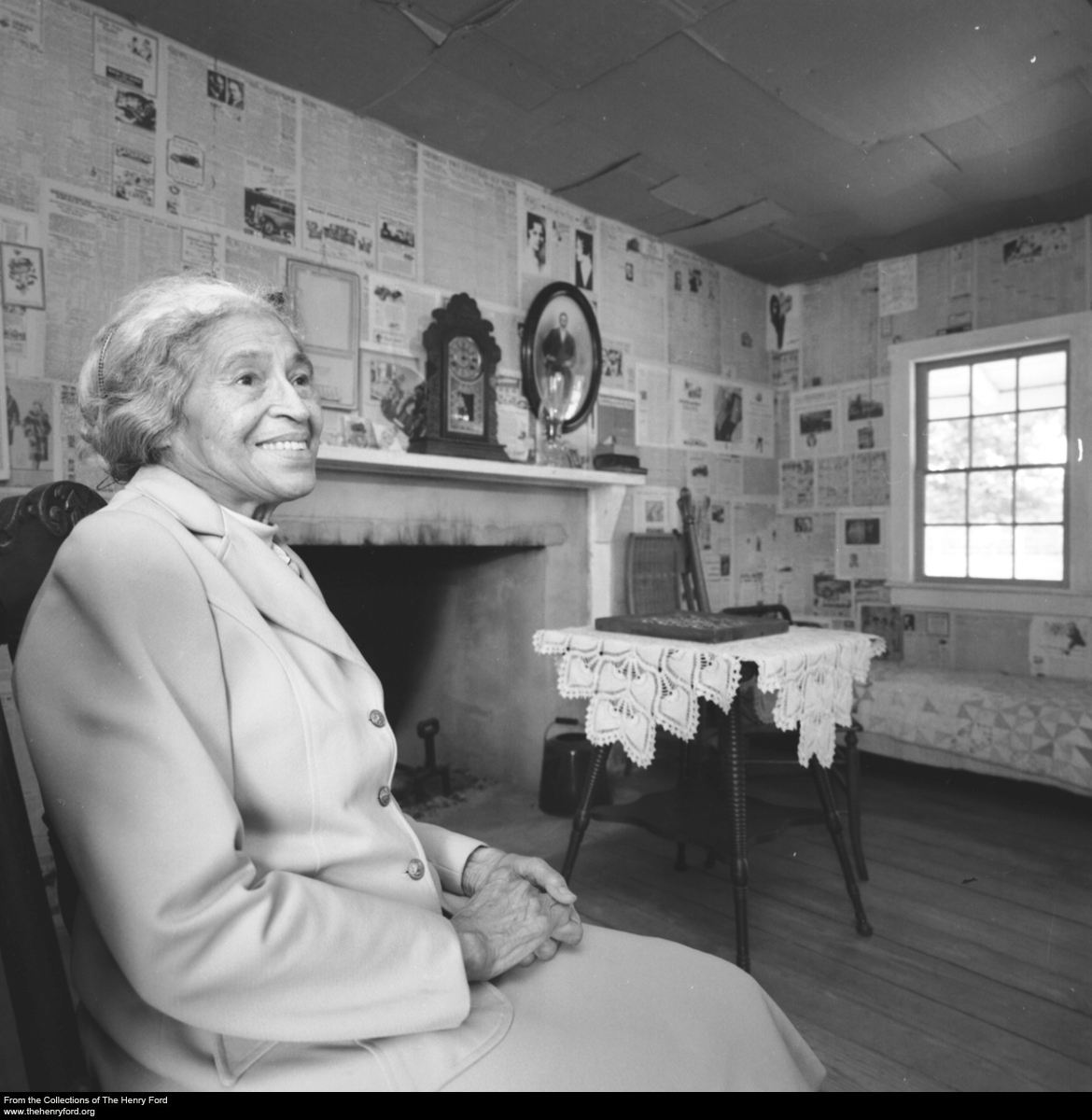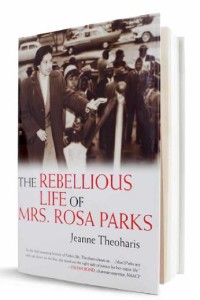The Rebellious Life of Mrs. Rosa Parks
| Written by | Christian W. Øverland |
|---|---|
| Published | 2/4/2014 |
The Rebellious Life of Mrs. Rosa Parks
| Written by | Christian W. Øverland |
|---|---|
| Published | 2/4/2014 |

Rosa Parks Visiting Mattox House in Greenfield Village, 1992 (Object ID: P.B.108917.7)
 Jeanne Theoharis’ definitive political biography of Rosa Parks sets out to correct the popular myth of Rosa Parks as the quiet, tired seamstress who refused to give up her seat on Montgomery City Lines Bus #2857. Through extensive and intricate research, Theoharis asserts that Rosa Parks spent years working courageously for civil rights. She prepared herself with an assured readiness, which she could rely on when an opportunity occurred as it did on the bus on December 1, 1955.
Jeanne Theoharis’ definitive political biography of Rosa Parks sets out to correct the popular myth of Rosa Parks as the quiet, tired seamstress who refused to give up her seat on Montgomery City Lines Bus #2857. Through extensive and intricate research, Theoharis asserts that Rosa Parks spent years working courageously for civil rights. She prepared herself with an assured readiness, which she could rely on when an opportunity occurred as it did on the bus on December 1, 1955.
As Theoharis points out, Parks started her political activist career at an early age, decades before she refused to give up her bus seat. Parks and husband Raymond, who met in 1931, shared a passion for taking action against segregation laws. She joined the Montgomery NAACP in 1943 as a volunteer advocate organizing black youth groups and trying to bring justice for young black women raped by white men. A few years later, she became the secretary of the NAACP — working with E.D. Nixon, president of the Montgomery NAACP chapter — to advocate for anti-lynching laws and overcoming the formidable process of registering black people to vote.
Rosa Parks also was a strong advocate for integrating whites and blacks. In 1947, the Freedom Train, carrying historic copies of the Declaration of Independence, Constitution, Bill of Rights and the original Gettysburg Address and Emancipation Proclamation, “was scheduled to stop in Montgomery and Parks published a report objecting to Montgomery’s all-white train committee,” according to Theoharis. The national requirement that the exhibit be racially integrated was highly controversial in Montgomery, Birmingham and Memphis. Parks and her colleagues were instrumental in bringing the Freedom Train to Montgomery as they pressured city officials to ensure all children would actually enter on a first-come, first-served basis. As the Montgomery NAACP secretary, she created several campaigns for racial integration, wrote numerous press releases countering white arguments for segregation and continued to mount successive and tireless campaigns for black voter registration.
Theoharis brings us through six decades of Parks’ courageous life as a political activist, which had serious consequences for her and her family. Great economic stress, constant harassment and people threatening physical harm and even death were now part of her life. Despite the private toll, Parks continued to publicly urge perseverance for the civil rights movement, never retiring as an advocate for racial justice.
Theoharis’ The Rebellious Life of Mrs. Rosa Parks is an exceptional scholarly work that offers a great story for its readers and should be part of every library and classroom. This work provides a new awareness of the importance of an American icon whose real history is better and far more relevant to move our society forward than the myth of a tired seamstress.
Review by Christian W. Øverland, former Executive Vice President of The Henry Ford.
Keywords | |
|---|---|
Series | |
Themes |
